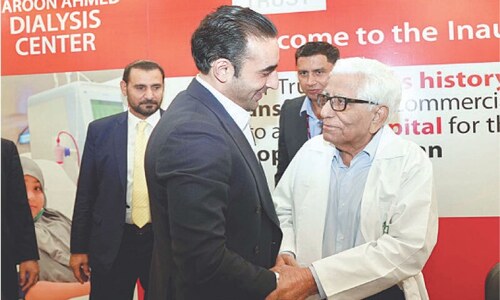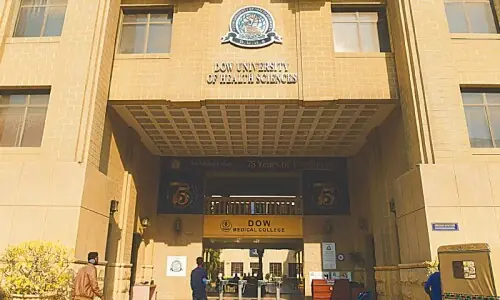
KARACHI: The state can establish and support Islamic universities not because it wants to promote ‘Islamisation’ of science, but to promote practical solutions to contemporary problems.
This was stated by the director of Aga Khan University’s Institute for the Study of Muslim Civilisations, Dr Leif Stenberg, while giving a talk on Muslim initiatives to reconcile science with Islam and the role of history.
The talk was organised at the AKU auditorium and attended by students and academics alike.
Dr Stenberg began by presenting an example of three Islamic universities in Muslim-majority nations — Saudi Arabia, Malaysia and Pakistan.
All the three countries established Islamic universities in the 1970s.
The general objective, in the case of the Islamic university in Islamabad, was to produce experts in Islamic learning, who would be able to meet economic, social, political, technological and intellectual needs of the society, he said.
“Other motives were to promote training and research in Islamic learning. Moreover, to support moral, ideological, intellectual and technological developments based on norms and values of Islam and create solutions to tackle contemporary problems.”
He added that universities in Europe and North America aspired to understand ideas formulated by Muslims and Islamic countries.
“Some of these individuals acted as educational aides to governments and private institutions in Muslim countries and institutes of Islamic learning in Western Europe and the United States.
“They advise, among other things, about the correlation between modern science and Islam,” he added.
However, some rarely had any training in natural sciences and were from the field of humanities and social sciences, he said.
In recent years a new generation of Muslim scholars had appeared, he added.
Several of them were trained in natural sciences and technology while having a comprehensive understanding of Islamic philosophy and epistemology, he said.
The second generation of such scholars discussed the relationship between Islam and modern science.
In relation to Islam, some of these attempts were described as ‘Islamic creationism’, he said.
He said the number of institutes, universities, books, pamphlets, DVDs, and homepages concerned with the correlation between Islam and modern science had increased in the last decades.
Many films were made in recent years such as the one from 2010 on the legacy of the pharaohs and the BBC documentaries on Islam and the learning tradition of Muslims studying the relation between Islamic thought and modern science, he added.
Attempts have been made to see the development of science and how it is linked to the development of Muslim history, he added.
In general, the Muslim discourse in modern science is mostly linked to Muslim interest in methods concerning the creation of the universe, he said.
Published in Dawn, April 28th, 2017


































